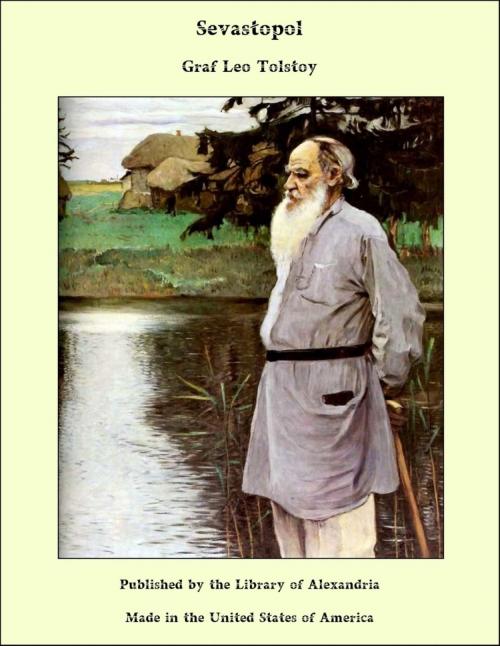| Author: | Lev Nikolayevich Tolstoy | ISBN: | 9781465602855 |
| Publisher: | Library of Alexandria | Publication: | March 8, 2015 |
| Imprint: | Language: | English |
| Author: | Lev Nikolayevich Tolstoy |
| ISBN: | 9781465602855 |
| Publisher: | Library of Alexandria |
| Publication: | March 8, 2015 |
| Imprint: | |
| Language: | English |
The flush of morning has but just begun to tinge the sky above Sapun Mountain; the dark blue surface of the sea has already cast aside the shades of night and awaits the first ray to begin a play of merry gleams; cold and mist are wafted from the bay; there is no snow—all is black, but the morning frost pinches the face and crackles underfoot, and the far-off, unceasing roar of the sea, broken now and then by the thunder of the firing in Sevastopol, alone disturbs the calm of the morning. It is dark on board the ships; it has just struck eight bells. Toward the north the activity of the day begins gradually to replace the nocturnal quiet; here the relief guard has passed clanking their arms, there the doctor is already hastening to the hospital, further on the soldier has crept out of his earth hut and is washing his sunburnt face in ice-encrusted water, and, turning towards the crimsoning east, crosses himself quickly as he prays to God; here a tall and heavy camel-wagon has dragged creaking to the cemetery, to bury the bloody dead, with whom it is laden nearly to the top. You go to the wharf—a peculiar odor of coal, manure, dampness, and of beef strikes you; thousands of objects of all sorts—wood, meat, gabions, flour, iron, and so forth—lie in heaps about the wharf; soldiers of various regiments, with knapsacks and muskets, without knapsacks and without muskets, throng thither, smoke, quarrel, drag weights aboard the steamer which lies smoking beside the quay; unattached two-oared boats, filled with all sorts of people,—soldiers, sailors, merchants, women,—land at and leave the wharf.
The flush of morning has but just begun to tinge the sky above Sapun Mountain; the dark blue surface of the sea has already cast aside the shades of night and awaits the first ray to begin a play of merry gleams; cold and mist are wafted from the bay; there is no snow—all is black, but the morning frost pinches the face and crackles underfoot, and the far-off, unceasing roar of the sea, broken now and then by the thunder of the firing in Sevastopol, alone disturbs the calm of the morning. It is dark on board the ships; it has just struck eight bells. Toward the north the activity of the day begins gradually to replace the nocturnal quiet; here the relief guard has passed clanking their arms, there the doctor is already hastening to the hospital, further on the soldier has crept out of his earth hut and is washing his sunburnt face in ice-encrusted water, and, turning towards the crimsoning east, crosses himself quickly as he prays to God; here a tall and heavy camel-wagon has dragged creaking to the cemetery, to bury the bloody dead, with whom it is laden nearly to the top. You go to the wharf—a peculiar odor of coal, manure, dampness, and of beef strikes you; thousands of objects of all sorts—wood, meat, gabions, flour, iron, and so forth—lie in heaps about the wharf; soldiers of various regiments, with knapsacks and muskets, without knapsacks and without muskets, throng thither, smoke, quarrel, drag weights aboard the steamer which lies smoking beside the quay; unattached two-oared boats, filled with all sorts of people,—soldiers, sailors, merchants, women,—land at and leave the wharf.















